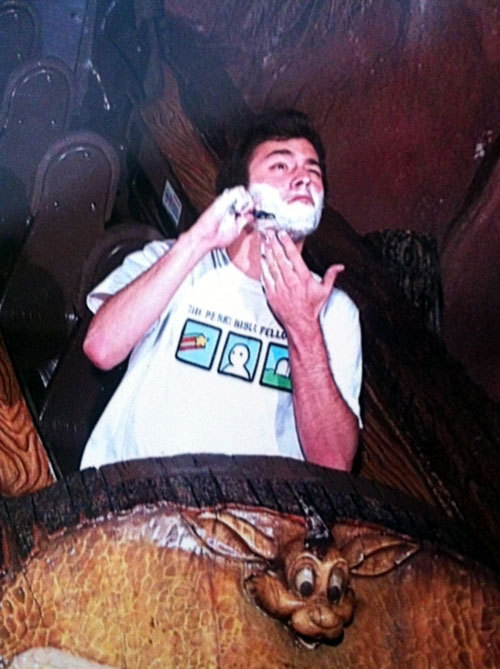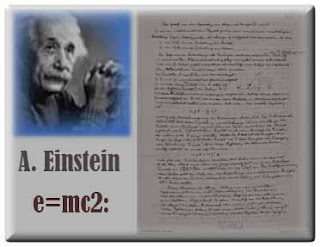millenniumgallary.com.bd: The Physics Nobel: Why Einstein Was Wrong About Be...: The Physics Nobel: Why Einstein Was Wrong About Being Wrong : The research that leads to a Nobel Prize in physics can sometimes be a littl...
http://millenniumgallary.blogspot.com/
Built in Quality and Reliability | Home millenniumgallary.com.bd) is the largest technology distributor of narayanganj with wide range of IT Products including Dell, Fujitsu, Prolink, Norton, Apple, HP, Intel ... www.millenniumgallary.com.bd Welcome to .www.millenniumgallary.com.bd Price: BDT. 26,000 Fujitsu LIFEBOOK MH330 Intel Atom N455 1.66GHz Memory 1GB DDR3 250GB HDD 10.1-inch SuperFine WSVGA back-light LED Display By: Khoka Sarker
Thursday, October 6, 2011
millenniumgallary.com.bd: Ten Things to Thank Steve Jobs
millenniumgallary.com.bd: Ten Things to Thank Steve Jobs: Ten Things to Thank Steve Jobs : After what many would call a brilliant career , Apple's Steve Jobs said late last night that he would step...
http://millenniumgallary.blogspot.com/
http://millenniumgallary.blogspot.com/
millenniumgallary.com.bd: Departure Of A Colleague Who Made A Difference - S...
millenniumgallary.com.bd: Departure Of A Colleague Who Made A Difference - S...: Departure Of A Colleague Who Made A Difference - Steve Jobs : Steven Paul "Steve" Jobs was an American computer entrepreneur and inventor. ...
http://millenniumgallary.blogspot.com/
http://millenniumgallary.blogspot.com/
millenniumgallary.com.bd: Photo
millenniumgallary.com.bd: Photo: Photo : http://millenniumgallary.blogspot.com/2011/09/millenniumgallarycombd-whats-good-at.html
http://millenniumgallary.blogspot.com/
http://millenniumgallary.blogspot.com/
millenniumgallary.com.bd: Creative Advertising Photography by Sharad Haskar
millenniumgallary.com.bd: Creative Advertising Photography by Sharad Haskar: Creative Advertising Photography by Sharad Haskar : Sharad Haksar is one of the awarded advertising photographers from India. Haksar is a...
http://millenniumgallary.blogspot.com/
http://millenniumgallary.blogspot.com/
Creative Advertising Photography by Sharad Haskar
Creative Advertising Photography by Sharad Haskar: 
Sharad Haksar is one of the awarded advertising photographers from India. Haksar is a Kashmiri. Born in Chennai, Sharad learnt his craft from lensman Iqbal Mohamed and V.Karthik and then branched out on his own with Eye-Light Pictures. In the year 2002, he founded creative hotshop 1pointsize and then went on to float One Eyeland, a virtual island for creative photographers.






























http://millenniumgallary.blogspot.com/

Sharad Haksar is one of the awarded advertising photographers from India. Haksar is a Kashmiri. Born in Chennai, Sharad learnt his craft from lensman Iqbal Mohamed and V.Karthik and then branched out on his own with Eye-Light Pictures. In the year 2002, he founded creative hotshop 1pointsize and then went on to float One Eyeland, a virtual island for creative photographers.




























http://millenniumgallary.blogspot.com/
Departure Of A Colleague Who Made A Difference - Steve Jobs
Departure Of A Colleague Who Made A Difference - Steve Jobs:
 After losing a power struggle with the board of directors in 1985, Jobs resigned from Apple and founded NeXT, a computer platform development company specializing in the higher-education and business markets. Apple's subsequent 1996 buyout of NeXT brought Jobs back to the company he co-founded, and he served as its CEO from 1997 until 2011.
After losing a power struggle with the board of directors in 1985, Jobs resigned from Apple and founded NeXT, a computer platform development company specializing in the higher-education and business markets. Apple's subsequent 1996 buyout of NeXT brought Jobs back to the company he co-founded, and he served as its CEO from 1997 until 2011.
http://millenniumgallary.blogspot.com/
Steven Paul "Steve" Jobs was an American computer entrepreneur and inventor. He was co-founder, chairman, and chief executive officer of Apple Inc. Jobs also previously served as chief executive of Pixar Animation Studios; he became a member of the board of directors of The Walt Disney Company in 2006, following the acquisition of Pixar by Disney. He was credited in Toy Story (1995) as an executive producer.
In the late 1970s, Jobs, with Apple co-founder Steve Wozniak, Mike Markkula and others designed, developed, and marketed one of the first commercially successful lines of personal computers, the Apple II series. In the early 1980s, Jobs was among the first to see the commercial potential of Xerox PARC's mouse-driven graphical user interface, which led to the creation of the Macintosh.
 After losing a power struggle with the board of directors in 1985, Jobs resigned from Apple and founded NeXT, a computer platform development company specializing in the higher-education and business markets. Apple's subsequent 1996 buyout of NeXT brought Jobs back to the company he co-founded, and he served as its CEO from 1997 until 2011.
After losing a power struggle with the board of directors in 1985, Jobs resigned from Apple and founded NeXT, a computer platform development company specializing in the higher-education and business markets. Apple's subsequent 1996 buyout of NeXT brought Jobs back to the company he co-founded, and he served as its CEO from 1997 until 2011.In 1986, he acquired the computer graphics division of Lucasfilm Ltd which was spun off as Pixar Animation Studios. He remained CEO and majority shareholder at 50.1 percent until its acquisition by The Walt Disney company in 2006. Consequently Jobs became Disney's largest individual shareholder at 7 percent and a member of Disney's Board of Directors. On August 24, 2011, Jobs announced his resignation from his role as Apple's CEO. (Source : http://en.wikipedia.org/wiki/Steve_Jobs)
On October 5, 2011, Apple announced that Jobs had died. He was 56 years old.
We Are Providing Top and Hot News For Actress, Models, Politics, Science,Fashion
Health, Technology, Sports and More..
Health, Technology, Sports and More..
http://millenniumgallary.blogspot.com/
Ten Things to Thank Steve Jobs
Ten Things to Thank Steve Jobs:
http://millenniumgallary.blogspot.com/2011/09/millenniumgallarycombd-whats-good-at.html
After what many would call a brilliant career, Apple's Steve Jobs said late last night that he would step down as CEO. Though he will stay on as Chairman and still hold sway over the company, much of Apple's day-to-day operations will fall to his successor Tim Cook. In his resignation letter, Jobs said that Apple has its best days ahead. While that may be true, now seems like as good a time as any to give credit where credit due.
Here are 10 things to give thanks to Steve Jobs for:
1. The iPod and iTunes. For many consumers, the pint-sized gadget that first hit the scene in 2001 was their first entrée into digital music. At the time, there were other digital music players but none had the staying power of Apple's iconic iPod, its subsequent versions and offshoots like the iPod Touch. But perhaps even more revolutionary was Apple's iTunes, the digital media player that launched in 2001. That platform didn't just become the ubiquitous means by which music was bought, sold and shared, it broke down the old music model that gave record companies ultimate reign over the radio waves. Suddenly, independent musicians and artists didn't need a record deal to be heard; they can now reach their audiences directly.
2. Not doing it for the money. Long before Citigroup's CEO Vikram Pandit was taking home $1 a year, Steve Jobs earned a measly $1 annual paycheck. When he rejoined the company in 1997 after being let go from Apple in 1985, Jobs set his salary at just $1. Though the tech pioneer is well-known for his wealth -- thanks to his investments in Apple and Disney, among others -- he has been quoted as saying "I never did it for the money." In 2010, his total compensation was again $1, according to a Securities and Exchange Commission filing.
3. Focusing on design. The original Macintosh computer aside, Jobs' focus on sleek, light-weight and resilient design has led to a concerted effort among the technology community to deliver similarly ergonomic technologies. Under his reign, dial-up modems, floppy drives and the fax machine got the ax, just to name a few.
4. Inspiring others. Not only do legions of entrepreneurs list Jobs as a source for inspiration, Apple's ecosystem has helped fuel thousands of other businesses. At present, there are more than 500,000 applications listed on iTunes, and countless other technology firms have sprung up to furnish ancillary products. From iPod battery-life extender Mophie to Apple-accessories supplier Speck to app development firm Sweb Apps, Jobs' creations for Apple have become critical to so many other businesses. Furthermore, applications developers and programmers have been building off the platform's specifications for years.
5. The iPad. E-readers, computers and mobile devices were already in existence when the iPad launched last January, but the newfangled gadget nonetheless caught on -- and beat record sales figures quarter after quarter. Apple's iPad -- which is expected to get a refresh in early 2012 -- also gave rise to new business concepts and uses. More than 90,000 applications have been developed for the iPad alone. Furthermore, other technology firms have since developed their own tablets but none have come close to touching Apple's success. Hewlett-Packard last week slashed the price of its TouchPad to $99 from the original sale price of $499, as it announced that it would discontinue the product.
6. Wowing investors. A decade ago Apple’s stock was worth $9 a share; today, it’s $372. Second only to oil giant Exxon Mobil, at $345 billion, Apple is one of the world's most valuable companies.
7. Being a visionary. Just ask HP and BlackBerry maker Research In Motion if Jobs' laser-like focus on design has been tough to beat. Though, notorious for being a stubborn micromanager, Jobs has managed to steer Apple in the direction of excellence. He is a visionary in the sense that he developed products for consumers that he thought they needed -- and they confirmed his hunches again and again.
8. Forcing other corporate giants to be innovative. Thanks to the launch of iTunes, which demanded that songs sell for the low-low price of $1, record companies that wanted to reach consumers on iTunes were forced to comply. In 2007, Cingular moved to redesign its voice-mail system for the iPhone’s visual voice mail. And in 2009, the typically guarded AT&T agreed to offer consumers a month-by-month data plan for the iPad without requiring a signed contract.
9. For proving that a dramatic turnaround can be possible. Once again in charge of Apple in 1997, Jobs struck a deal with Microsoft to help ensure Apple's survival. Under the arrangement, Microsoft invested $150 million for a nonvoting minority stake in Apple, and the companies agreed to "cooperate on several sales and technology fronts." Next, Jobs installed the G3 PowerPC microprocessor in all Apple computers, making them faster than competing Pentium PCs. He also spearheaded the development of the iMac, a new line of affordable home desktops, which debuted in August 1998 to rave reviews. Under Jobs' guidance, Apple quickly returned to profitability, and by the end of 1998, boasted sales of $5.9 billion.
10. Boosting employment. In 1997, the company and its world-wide subsidiaries had just 8,437 regular employees, and an additional 1,739 temporary or part-time contractors and employees, according to SEC filings. As of last September, Apple had approximately 46,600 full-time equivalent employees and an additional 2,800 full-time equivalent temporary employees and contractors. (Source - http://www.entrepreneur.com/article/220196)
We Are Providing Top and Hot News For Actress, Models, Politics, Science,Fashion
Health, Technology, Sports and More..
Health, Technology, Sports and More..
http://millenniumgallary.blogspot.com/2011/09/millenniumgallarycombd-whats-good-at.html
The Physics Nobel: Why Einstein Was Wrong About Being Wrong
The Physics Nobel: Why Einstein Was Wrong About Being Wrong:
The research that leads to a Nobel Prize in physics can sometimes be a little obscure. In 1990, for example, three scientists got the nod "for their pioneering investigations concerning deep inelastic scattering of electrons on protons and bound neutrons." Got that? The next year, the prize went to a scientist "for discovering that methods developed for studying order phenomena in simple systems can be generalized to more complex forms of matter."
But sometimes, you just can't help saying, "Wow!" and maybe: "What took the Nobel folks so long?" That's what Adam Riess's friends kept asking him — and this morning at 5:30, the phone finally rang. "I knew that was the famous time," says the Space Telescope Science Institute astronomer. "The voice sounded Swedish, and I was pretty sure it wasn't Ikea." Sure enough, Riess and two other astrophysicists had just been awarded the 2011 Nobel Prize for the astonishing discovery a little over a decade ago that the universe is expanding faster and faster as time goes on. The most likely reason: a mysterious cosmic force known as dark energy.
Riess and his collaborator Brian Schmidt, of the Australian National University, had no intention of discovering dark anything when they launched the High-z Supernova Search in the mid-1990s. Neither did Saul Perlmutter, of the Lawrence Berkeley Laboratory, when he and his colleagues started the competing Supernova Cosmology Project. Both teams knew the universe has been expanding ever since the Big Bang. The question they wanted to answer: Is the gravity of 100 billion galaxies, all pulling on one another, slowing the expansion down? And if so, by how much?
To get the answer, the scientists looked to supernovas — exploding stars so bright they can be seen all the way across the universe. The farthest of these cosmic bombs detonated when the universe was still young. It's taken billions of years for their light to reach us, so that light is a snapshot of what the expansion looked like back then. The closer ones are a snapshot of more recent conditions. Once the astronomers found them, they clocked the supernovas' speed — and thus, the expansion speed of the universe at different eras — by measuring subtle features in the wavelength of their light.
What they found, to their astonishment, was that the universe wasn't slowing down at all. It was speeding up. "We spent at least a year struggling to understand what we were seeing," Perlmutter told TIME. In the end, improbable as it seemed, both teams concluded independently that there must be some unseen, unknown force pushing the cosmos apart. Their joint discovery was named Breakthrough of the Year for 1998 in the journal Science.
What's even crazier is that just such a force was predicted, nearly a century ago, by Albert Einstein himself. When he put together the equations of general relativity back in 1916, Einstein applied them to the universe as a whole. To his consternation, they predicted that if the universe wasn't expanding, it should be collapsing. It seemed obvious that it wasn't expanding — but since it wasn't collapsing either, something must be propping it up. Einstein called the something the cosmological constant and added it to his theory with some distaste, because the work had been so mathematically beautiful without it.
Then, a decade or so later, Edwin Hubble discovered that the universe is expanding after all. Einstein abandoned the cosmological constant with relief, declaring that its invention had been "my greatest blunder." He was talking about his failure to trust his elegant equations in the first place — but it's also true that Einstein would probably have bagged himself another Nobel for predicting the expanding universe.
The idea of a cosmological constant didn't go away entirely. "It was something theorists would pull out in desperation," says Riess, "when they couldn't make the age of the universe come out right." As University of Chicago astrophysicist Michael Turner once put it: "The cosmological constant is an idea that's come and gone ... and come ... and gone."
But the accelerating universe brought the idea of some kind of such invisible force back with a vengeance. Even so, the Nobel committee took its time, and despite what Riess's friends say, he thinks the lag was perfectly justified. Even though the odds were against both teams being wrong somehow, it was impossible to rule that double error out either. Maybe supernovas were different in the past, for example, which made it look like the universe was accelerating. It was important for other groups to confirm the acceleration using different techniques. One particularly strong clue that Riess and the others were right: the Hubble Space Telescope showed that the universe actually did slow down early on, then sped up as the dark energy kicked in. With enough confirmations in hand, everyone could finally relax.
Everyone, that is, except the theorists. Just because dark energy is the leading explanation for the accelerating universe, it doesn't mean anyone actually understands what it is. Asked whether he thinks scientists are any closer to figuring that out, Riess answers bluntly, "I do not." But, he adds, "They're getting more creative about it, and maybe that will be the key." If they finally do crack the mystery, another Nobel is pretty much guaranteed.
(Source : http://www.time.com/time/health/article/0,8599,2096138,00.html)
(Source : http://www.time.com/time/health/article/0,8599,2096138,00.html)
We Are Providing Top and Hot News For Actress, Models, Politics, Science,Fashion
Health, Technology, Sports and More..
Health, Technology, Sports and More..
Subscribe to:
Comments (Atom)














